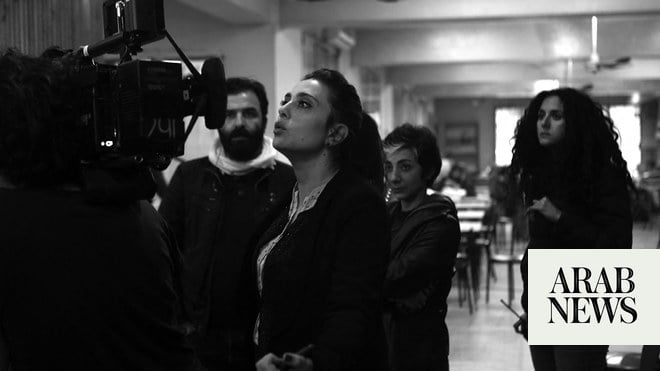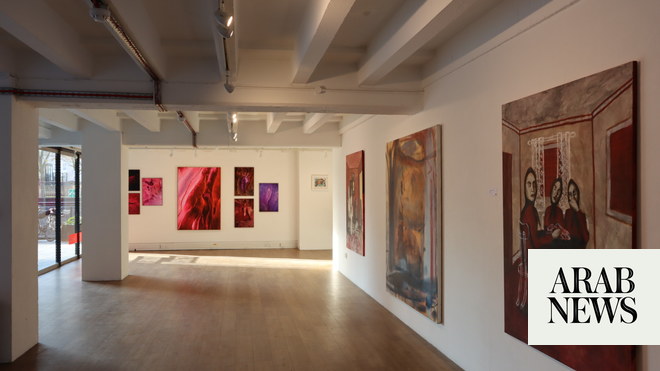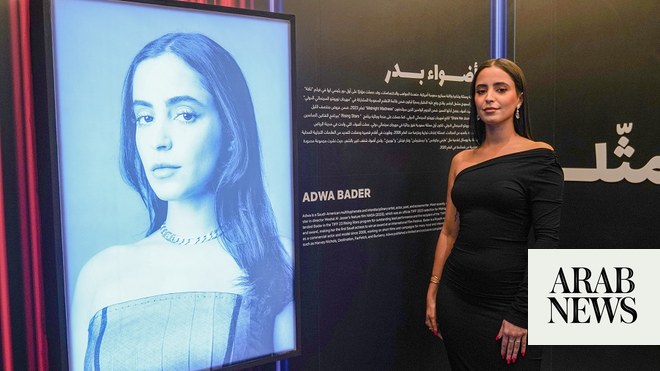
Liverpool Arab Arts Festival and BBC Arabic Festival collaboration presents four regional movies
LONDON: Liverpool Arab Arts Festival (LAAF) is currently underway, taking place on a digital platform in light of the Covid-19 pandemic. One of the program highlights is a showcase of female filmmaking — a collaboration between LAAF and the BBC’s Arabic Festival. “Female Directors from Today’s Arab World” is curated by Sheyma Buali, director of the BBC Arabic Festival. “There’s a double process,” she explains of her role. “The first is calling in all the films and going through them. We do a big campaign so that we get as many submissions as possible from anyone in the world doing work that reflects the political and social situations in the Arab world.”
Buali estimates that there are around 350 film submissions each year, which is narrowed down to 20 entries. Winners are selected in a number of different categories. “The judging panel was mostly my doing,” Buali tells Arab News. “We try to have a fair cross section of media, journalism, film, London-based and Arab representation. And then, of course, male and female, more- and less-experienced. It’s a matter of being as well- rounded as possible in terms of representation.”
Seeking out submissions that actively engage with sociopolitical issues, and films that provoke discourse to that end, comes with its own set of challenges, however. “One of the gaps that we have — and we’ve had this all along — is stories from the Gulf, because we are very socially political, and poltically heavy,” Buali says. “I find that Gulf filmmakers are quite politically shy.”
There are some interesting insights to be gleaned too, she adds, particularly with regards to female directors.
“Female representation (is) quite low, but what is interesting is that most of those women who make it into the group of 20 win. They were few, but their work is really powerful,” she says. “I think that’s a challenge: How do you reach the people that you really want to reach to fill those gaps in representation? In terms of the stories, and of the content, there’s not much we can do. But we see trends in the stories.”
The interest in female filmmakers’ work has led Buali and the BBC Arabic Festival to prepare a special showcase of films for this year’s LAAF, taking place until July 18. The two organizations have a well-established relationship that, in 2020, will see four movies screened as part of “Female Directors from Today’s Arab World.”
The quartet — “One Minute” by Dina Naser, “Only Silence” by Katia Jarjoura, “Rupture” by Yassmina Karajah and “The Calling” by Mariakenzi Lahlou — explore the effects of war on individuals and their families, albeit in strikingly different ways. Some take a more abstract approach to the horrors and fallout of war, while others use fictionalized narratives to reflect the experience of living in a war zone.
But all are bound together by a unique, forthright and personal take on life in conflict zones. And the program highlights the progress being made in terms of Arab cinema produced by female directors. “I think part of that is because the arts, and filmmaking, was never really taken as a serious occupation,” Buali explains. “There was this attitude of, ‘She can go ahead and play around with a camera, that’s really cute and sweet.’ And so more women did, and now they’re telling really awesome stories. So there’s this sort of inverse sexism — women who have been empowered by disempowerment.”
Buali is encouraged by the impressive work coming from female directors, but would like to see greater progress made in other areas behind the camera. “I’m interested in seeing women in editorial positions where they can empower other women. Positions such as grant givers, the people who make those kinds of decisions, the programmers. It’s all connected, there’s a kind of domino effect.”
Developments such as female appointments at major arts and cultural institutions, Buali believes, signify that progress is being made. “I’m really happy that, for example, the CEO of the Doha Film Institute is a woman,” she says. “The head of AFAC (the Arab Fund for Arab Culture) is a woman. These two organizations, I think, are the biggest independent funders of film in the Arab world, and the heads are women. I think that’s a fantastic place to be for us all.”












